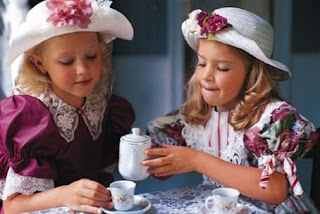The other day he got embroiled in a discussion of what was the ages a human being goes through. Infancy through young Adulthood seemed easily defined. But when the discussion turned to middle age and old age the discussion got murky, not only because the discussion was talking about the ending of youth and the beginning of old age but the difference between the developed world and the undeveloped. In the United States the average age for living is around 80 while it is considerably less say in Kenya or India. This is the reason that it seemed to him that all one had to do to find middle age is divide the average living age by two, which would make USA middle age around 40 and Kenya around 30, India 33. However various 'experts" feel that middle age defined for the USA can be ages, 35-55, 40-60, 45-65. These definitions then say middle age must be calculated by the way the body and mind starts to deteriorate so even though the average life expectancy is 80 one can be middle aged at 65 giving only 15 years of life expectancy until old age and death. But the very fact that life expectancy can be so divergent between developed and undeveloped countries leads one to the conclusion that those with greater wealth who can live healthier lives, can and will do so even in countries that are undeveloped. Not only does wealth play a role but how the populace conducts itself also plays a role. Even the rich can smoke, eat the wrong foods, drink too much, dissipate the body through sexual excess. Example of such is unprotected sex while bedding down every Tom, Dick and Mary.
Also playing a role in life expectancy and therefore the mid life period are genetics. Those with Huntington's disease certainly will experience their middle age much sooner than those who do not have that disease. What he was finding out was there was no real definition of middle age although our researchers and medical men seem intent on defining it. The following is a quote from a New York Times' Book Review:
"IN OUR PRIME
The Invention of Middle Age
By Patricia Cohen
Illustrated. 306 pp. Scribner. $25.
Despite the fact that researchers have been studying middle age intensively for decades, the term itself seems to have no fixed definition. Nearly any span between 40 and dementia appears to qualify, depending in part on whether we’re talking about ourselves (“But I feel just the same as I did when I was 20”) or all those people who show up at our college reunions (“Everyone looks so old”). But surely the elasticity of the concept is its best feature. After all, not much follows middle age except joining the ranks of the ancients — or, as geriatric specialists now say, “the old old.” (Perhaps they don’t intend to evoke the drumbeats of doom with that repetition, but otherwise what does it mean? A life stage so nice they named it twice?)
Not only is middle age hard to pin down, but Cohen, a reporter for The New York Times, points out that it didn’t even exist as a category until about halfway through the 19th century. Before then, she writes, “age was not an essential ingredient of one’s identity.” Life had markers like marriage, parenthood and physical incapacity; one’s years per se were not the measure. This changed with industrialization and the growth of cities, when age became a useful means of segmenting the population. Children who earlier studied all together in a one-room schoolhouse, for instance, were divided into grades by age. Birthday greetings became popular. By 1900, when the census began asking Americans their exact date of birth — instead of packing people into 10-year compartments — we were a nation thoroughly aware of how old we were."
He thought it was interesting that the demographic community has only used "middle age" as a category for a little more than 100 years. The more he researched this age category the more he became convinced the age span quoted of some 20 years, say age 40 to age 60 had no real meaning except in generalities, specifically each person between conception and death aged at different levels and the current pot of statistics didn't break out the differences between income levels, ethnicity, genetics, life style and everything else that influences the ageing process.
He guessed it made it easier for the medical community to guess, they call it diagnose, causes when they can attribute something to the ageing process but one may not be losing his or her sex drive due to the loss of testosterone, or menopausal changes due to the fact that the patient has reached a certain age but rather to other causes. It is so easy to chalk up certain illness and changes in ones body or mind due to ageing when it may have nothing to do with that. Therefore he came to the conclusion that he would no longer use the term "middle aged" rather "young" and "getting older" and "old" acknowledging that a person loses bone density, reflexes slows and all that stuff but with each person at different rates which means there is only a statistical middle but no real span covering it. Which means from conception to death we progressively age with each person reaching different stages at different times. This means some one can be old at the young age of 20 while one can be young at the ripe old age of 50 or more.


















.jpg)
.jpg)
.jpg)
.jpg)
